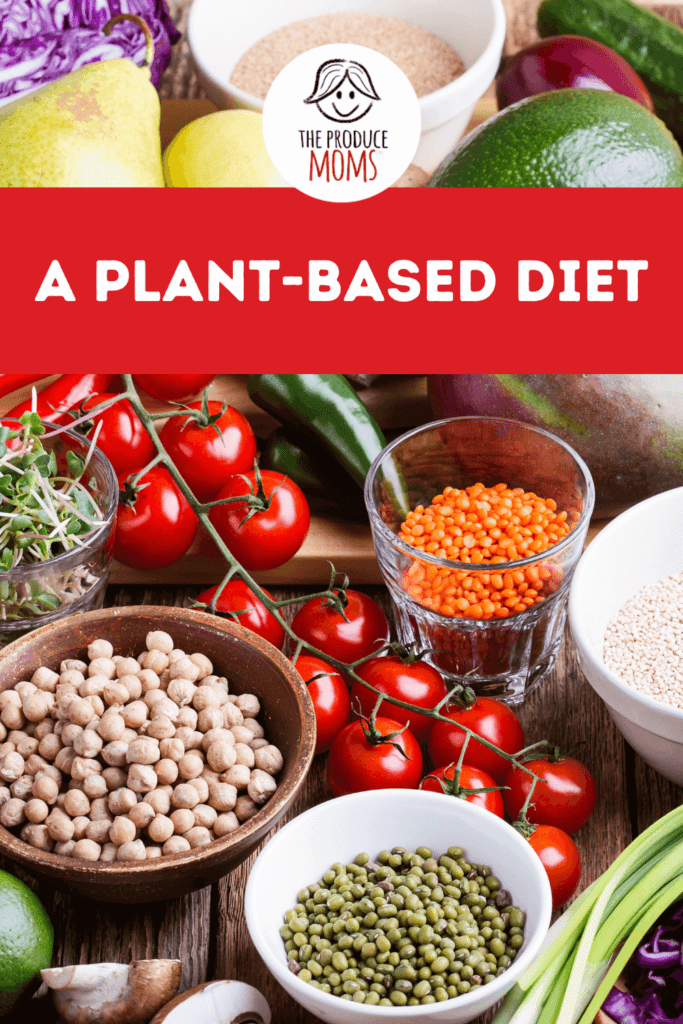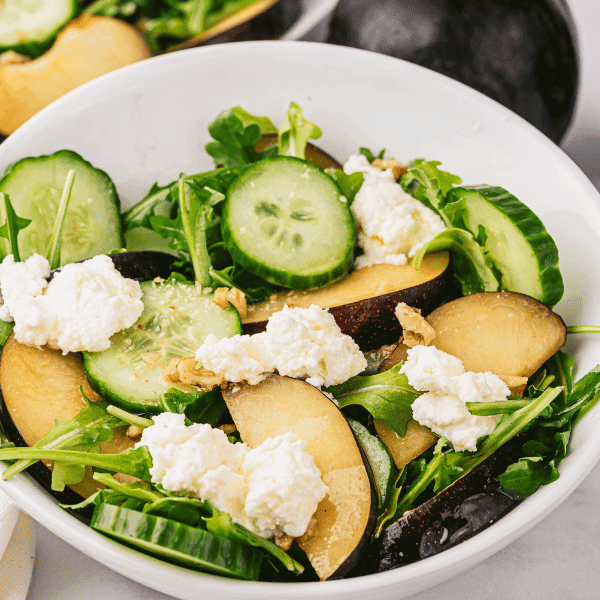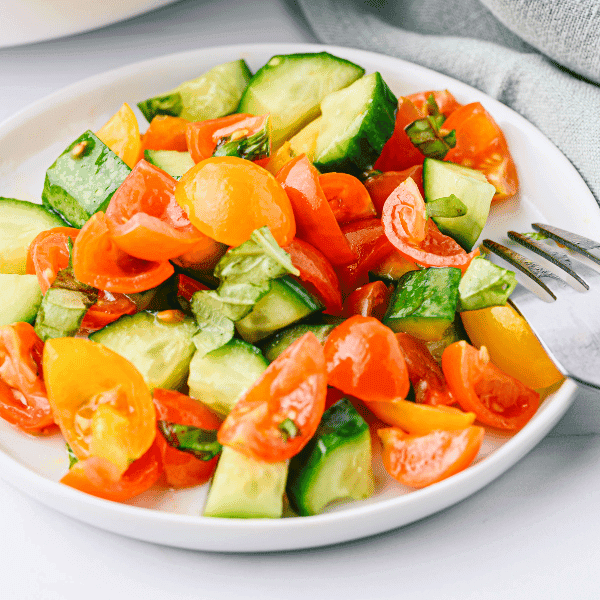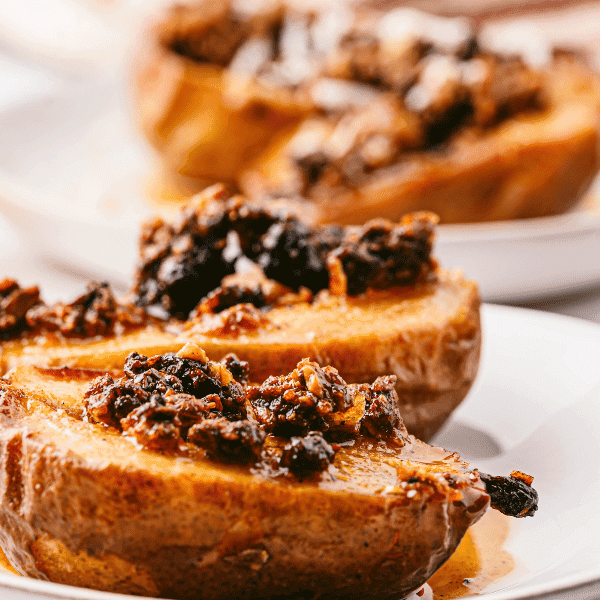A Plant-Based Diet
Sep 30, 2020
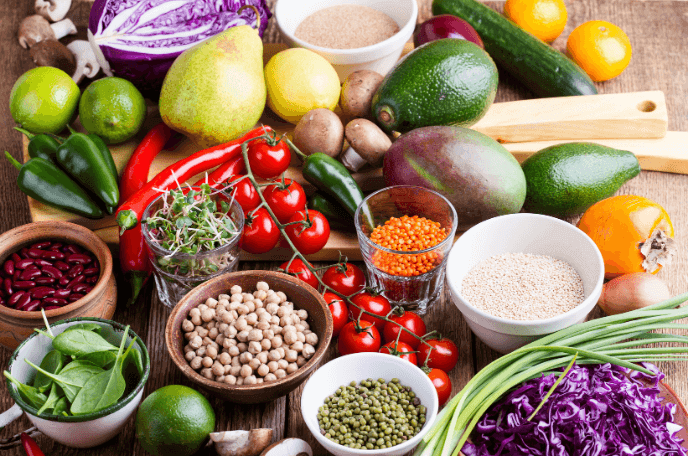
This post may contain affiliate links. Please read our disclosure policy.
Plant-based diets are gaining popularity! However, it can be quite confusing to understand what exactly is a “plant-based diet”. We break it down in this blog to eliminate some of the confusion. A well-planned plant-based diet has been shown to boost intakes of nutrient-dense foods while reducing your risk for certain disease states.
What is the plant-based diet?
There are many different interpretations of a plant-based diet. You could even consider “plant-based” as the main category with other diets such as vegan, vegetarian, or Mediterranean as subcategories. All of these diets focus on incorporating plant-based foods while avoiding or limiting animal products.
Think of plant-based as a lifestyle versus a strict diet plan. Following a plant-based eating approach is 100% customizable based on your lifestyle, budget and preferences. A plant-based style of eating emphasizes keeping fruits, vegetables, legumes, nuts, seeds and whole grains as the main feature on your plate.
Health benefits of plant-based diets:
It is no secret that eating plant-based reduces our risk for disease. With fruits and veggies at the core, we are likely to continue to see improved health outcomes. Research helps us understand the specific benefits associated with a plant-based style of eating. To name a few:
- Lower Risk of Heart Disease
- Sustainable Weight Loss
- Improved Blood Sugar Control
- Reduced Risk of Cancer
Nutrients of Concern:
When following a style of eating that limits or eliminates a food group, it is important to identify potential nutrients of concern. These are nutrients that should be added to your day in an alternative way to ensure you are getting enough. Since plant-based diets limit or eliminate animal-based foods, here are a few nutrients to consider:
Protein – Important for cell growth and repair, immune health and nutrient transport, our bodies need protein. If you want to avoid animal products completely, include plant-based proteins such as lentils, beans, nuts, seeds, soybeans, wild rice or quinoa to meet your needs.
Vitamin B12 – Needed for red blood cell formation, brain function and energy production, vitamin B12 is an essential nutrient. Sources of B12 can be limited when following a plant-based style of eating. Plant-based sources include: fortified nutritional yeast or cereals. *Vitamin B12 supplementation may be necessary – speak with your doctor before starting any dietary supplementation.
Vitamin D – Important for calcium absorption, bone health and immune health, vitamin D is made by our bodies through direct sun exposure or consumed through food. Plant-based options include: High vitamin D mushrooms, fortified orange juice and fortified cereals.
Iron – Needed for oxygen transport, metabolism and development, iron is an essential nutrient. Plant-based foods include: chia seeds, lentils, oats, prunes, collard greens and pumpkin seeds. Boost iron absorption from plant-based sources by pairing with a food rich in vitamin C.
Foods included in a plant-based diet:
We have put together a list to grab on your next grocery run to start packing your fridge, freezer and pantry full of plant-based foods.
Fruits
Fruits are stables to keep in your home all-year. Packed with vitamins and minerals, fruits keep our meals nutritious and tasty. Perfect for eating fresh or freezing for later.
- Apples
- Stone fruits
- Bananas
- Pears
- Berries
- Citrus fruits
- Grapes
- Tropical Avocados
Vegetables
Veggies boost our meals with fiber to keep us feeling full longer. They can be blended into smoothies, added as a muffin ingredient or mixed into your favorite recipe.
- Mushrooms
- Jicama
- Broccoli
- Onions
- Kale
- Leeks
- Zucchini
- Potatoes & sweet potatoes
Legumes
These plant-based foods fill our meals with fiber, protein and iron. Legumes can be purchased dry or canned and added to soups recipes, stir-fry meals or casserole dishes.
- Black beans
- Kidney beans
- Lentils
- Chickpeas
- Snow peas
Nuts/Seeds
Nuts and seeds provide protein, antioxidants and heart healthy fats to our meals. Add them to salads as a topping, blend for a nut or seed butter or create a homemade trail mix.
- Walnuts
- Pecans
- Peanuts
- Pistachios
- Flax seeds
- Chia seeds
- Pumpkin seeds
- Hemp seeds
- Sunflower seeds
Whole Grains
Whole grains are affordable plant-based foods that provide protein, iron, vitamins and minerals. Incorporate whole grains into any eating occasion.
- Oats
- Brown rice
- Barley
- Quinoa
- Millet
Plant-Based Recipes:
We wanted to share some of our favorite recipes to inspire you to eat more plant-based meals.
Breakfast Recipes
Lunch Recipes
Dinner Recipes
- Veggie Tofu Bowls with Peanut Sauce
- Porcini Mushroom and Broccoli Rabe Risotto
- Spicy Vegetarian Ramen Soup with Baby Bok Choy
Tips for Success:
- Get creative! The possibilities are endless when it comes to creating nutrient dense recipes.There are so many great ways to incorporate fruits, vegetables and other plant-based foods into your day.
- Honor your food preferences! Remember that plant-based is not a strict diet plan – it is a customized eating approach based on your lifestyle. Do you want to eat only plants or also include animal products at meals? Decide based on what is best for your family.
- Have a plant! If you are struggling to decide how to eat more plant-based, ask yourself “Do I have a plant?” anytime you enjoy a meal or snack. This is just one way to start adding more plant-based foods to your day.
- Have fun! Food is culture – embrace it by trying new plant-based foods. Especially fruits & veggies. Take the time to learn the stories behind the different plant-based products available – you will truly be amazed.
Have additional questions regarding the plant-based diet? Comment below!
Disclaimer: The health information shared by The Produce Moms is meant for education to inspire you and your family to eat more produce. Before making any lifestyle or diet changes, consult your physician or Registered Dietitian.






